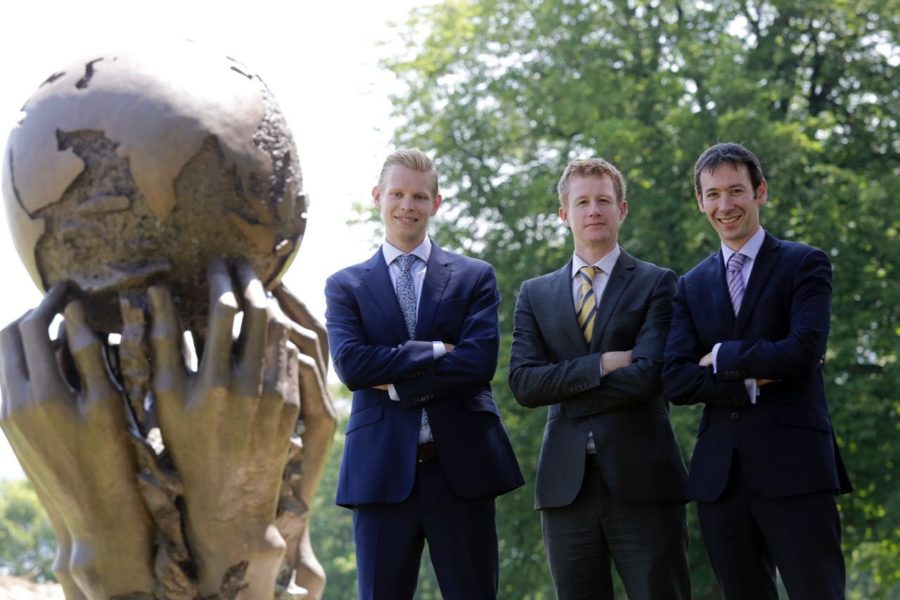The Council came to a hot and weary end last Friday with some good results on the issues that mattered. Most importantly the EU and the African Group reached agreement on an investigation into reports of serious violations in the DRC. The Council also passed strong resolutions on violence against women, discrimination against women, child early and forced marriage as well as on Syria, Belarus and many more. One of things I like most about my work is the great people I get to work with. But it’s rubbish when they leave. James Mclaughlin has been the unsung hero of our team for more than 5 years and has put together some parting thoughts. All the best James. I’ll miss you.
The End of a Cycle
The English author HG Wells once said “Whenever I see an adult on a bicycle, I do not despair for the future of the human race.”
I’ve spent the last 5 years in Geneva, with a particular focus on the Middle East and human rights. I’ve also had the privilege of covering other aspects of the UN’s work here, including the humanitarian agencies. And for the past eighteen months I’ve spent much of my time focused on Syria.
I’ve had the opportunity to work with a fantastic set of colleagues both in the UK Mission and across the UN. And on a range of issues as diverse as North Korea to Syria, LGBTI rights to migration, the right to development to business and human rights. While the work has often been difficult, I can honestly say I’ve enjoyed it. I’ve also managed a top speed of 60.9 km/hour on an electric bike cycling down the hill to the UN Palais.
But what’s it all for? For me, there are two key lessons.
Firstly, we should not forget about the ‘human’ in human rights and why we are doing this. It sounds blindingly obvious, but it’s often too easy to get lost amidst the process, frenetic pace (and occasional drudgery) of Council sessions and the reality that we can’t always resolve international issues as quickly as we would like.
Syria is a classic example. Despite the figures speaking for themselves – almost 500,000 people killed, 11 million displaced and the other aspects of the unbearable suffering endured by the Syrian people since the conflict began over six years ago – it can be all too easy to become de-sensitised and give up hope.
But it’s critical that we keep the human rights situation in places like Syria under the spotlight. The Council plays an essential role in documenting the human rights situation to help advance accountability for violations. This can both support efforts towards peace and justice for those who have been affected by conflict. I’ve tried to keep this firmly in mind as we negotiate resolutions, session after session.
Secondly, we need to do more to find a common purpose in the less obvious places. It’s all too easy to gravitate to those we know or countries we feel aligned with. Of course, working with the ‘like-minded’ is an essential part of any country’s diplomacy. But we should all spend more time engaging with those whose values or approach we do not commonly share. I’ve done some of this in my time in Geneva, but there’s scope for more, particularly at a time when it can feel like the world is becoming more polarised. Compromise is not always possible but as diplomats we can play a small but important role in bridging divides and these can often lead to successes. Note to self for my next multilateral posting…
I’m a big fan of cycling, and spent one Sunday during the June Council cycling 35 km up the famous Col du Galibier in the French Alps. The climb up was brutal. It was over 30 degrees, I ran out of water, and my Italian friend, clearly much more suited to hotter climes than his pasty English companion, soared ahead into the distance. I eventually arrived at the top, sunburnt, dehydrated and questioning my own sanity – why hadn’t I stayed at home catching up on Netflix? But it was worth it. The agony of reaching the top was matched by the joy of simply getting there and taking in the magnificent views, knowing that I’d resisted the temptation to give up.
What’s the link? I think it’s something to do with human will and endeavor. The hope that through persevering and through pain and toil we can, collectively, ‘get there’ and make a difference. And if we stop, we have no chance of getting there at all.
From me it’s over and out. But I will continue to think of colleagues in Geneva and the important work you do. And if anyone beats my record of 60.9 km on a bike whilst approaching the Palais please let me know…

